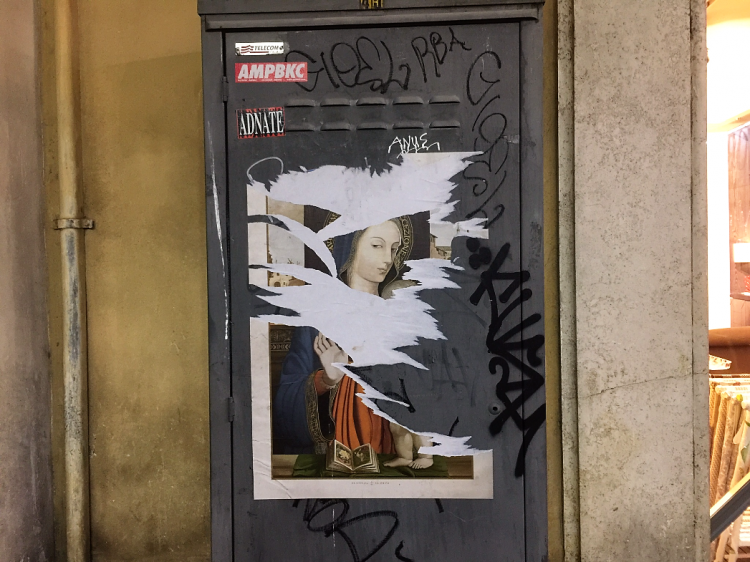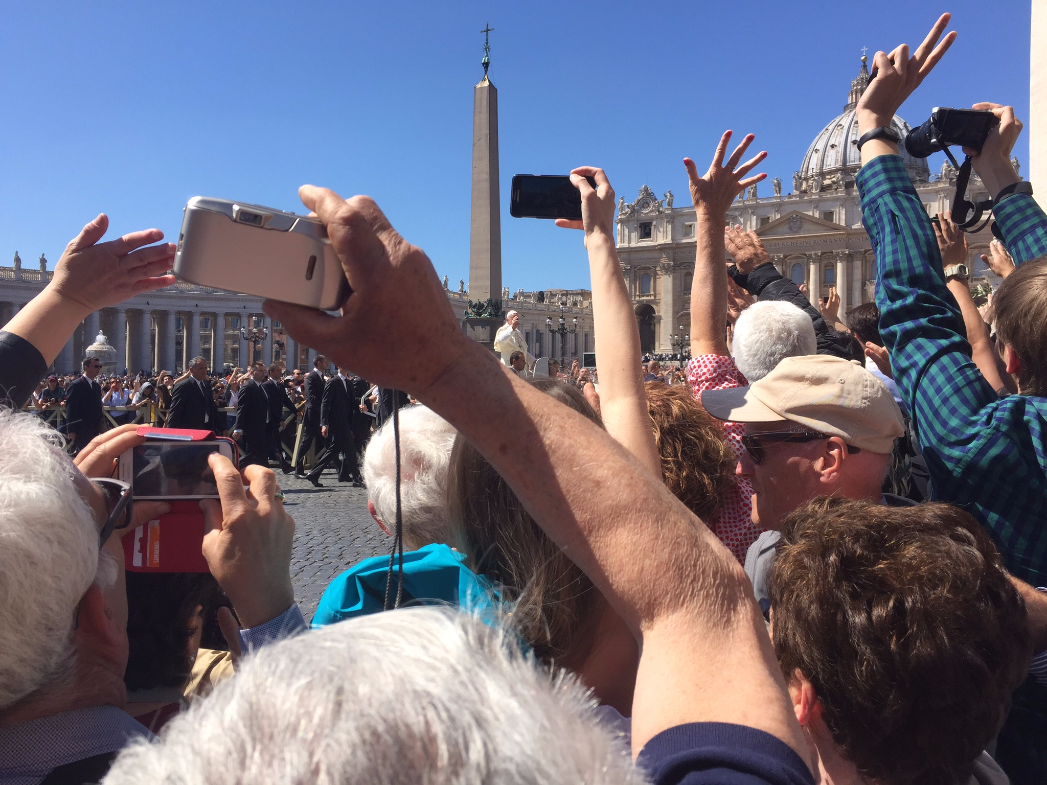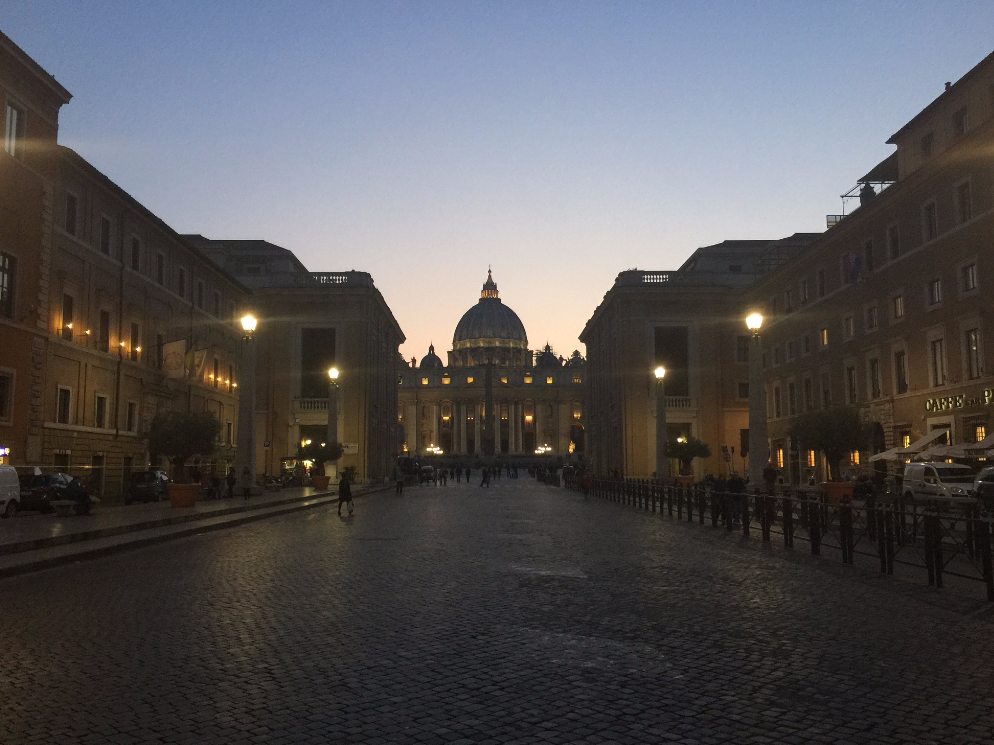(Anti)Pope Francis?

For nearly two thousand years, the Papacy has served as the seat of some of the world's most powerful figures. From crowning Christendom's emperors to spiritually leading 1.3 billion people this very day, the Bishop of Rome traces his lineage to Saint Peter, to whom Jesus Christ said: "on this rock I will build my church" (Matt. 16:18, KJV). While the Roman Pontiff may seem little more than an antiquated figurehead, it was only a half-century ago that anti-Catholic rhetoric threatened President Kennedy by questioning whether his loyalty lay with the Vatican or the White House.
"High flying, adored," the former Argentine Cardinal Jorge Mario Bergoglio is now regarded as the "People's Pope." Breaking boundaries himself, Pope Francis became the first Jesuit pope, the first from the Americas and the Southern Hemisphere, and the first in over 1000 years to be non-European and choose an unused name (in honor of St. Francis of Assisi).
Renowned for his humility and inclusion, Monsignor Robert Wiser, a professor of church history at Seton Hall University in New Jersey, explains that "Most people like Francis... They see in him a compassion they have not seen in the church." Throughout his four years in office, Pope Francis has not only sought reconciliation with divorced and remarried Catholics, but also in regards to women who have had abortions. Nina Michelle-Rines of the Russian Orthodox Church says, "He is involved, open-minded, caring and makes a positive difference in the world. From supporting climate change to discouraging racism or anti-gay sentiments. I visualize him as a real-life Santa spreading world peace and tolerance as gifts."
"I wouldn't say the Holy Father gave her the bird." - Ché, Evita (1996). Palm Sunday Papal Blessing, 2017. Image Credit: Henry Hardwick
In his Amoris Laetitia (The Joy of Love), Pope Francis focuses on familial love in the contemporary world, addressing topics such as abortion, divorce, sexual orientation, and gender identity. Touching these topics, an anonymous student of the Armenian Orthodox Church explains that "with this speed of progress the world is moving on—if we hold all things the same, there is a real danger to lose the importance of Church in the lives of people."
Finding himself at odds with members of the Traditionalist Catholic movement, Pope Francis has been accused of having "effectively upheld 7 heretical positions about marriage, the moral life, and the reception of sacraments." The first of its kind since the Avignon Papacy of 1333, the 40 'Conservative' clergymen and lay scholars who published the Correctio filialis de haeresibus propagatis (A filial correction concerning the propagation of heresies) believe that they are saving the Church. However, as an anonymous student who is a practicing Roman Catholic mentions: "United in their desire to maintain traditional values and deciding sin for all, it would probably be a bit harsh to call these priests a modern-day Caiaphas. But their fear of a man asking us to forgive sinners and inviting sinners to Jesus' table, cannot be ignored."
No stranger to reformation, the Second Vatican Council (Vatican II) of 1962-65 effectively transformed the Catholic Church into what it is today. In the same spirit that Pope Francis strives toward now, Pope John XXIII and Pope Paul VI sought "engage, not condemn." Promoting a "universal call to holiness," it was not a denunciation of the past, but the proclamation that "human dignity... and the Gospels are complimentary" in a new age. As Lucille Befort, a French Atheist explains, "Church needs to be modernized and to be more tolerant toward certain communities."
Therefore, it's no surprise that the bulwark of those supporting the correctio filialis is the same as those who oppose Vatican II. By revising the Mass into the vernacular, changing the orientation of the priest and church, and 'updating' the liturgical music and aesthetics, the Council was received as an overhaul at best, and a "new religion" by its greatest critics. While Traditionalists are adherents of the 'Latin Mass,' there are those who maintain good standing with the Holy See and those who outright deny the legitimacy of the Papacy. Not exclusive to the Catholic Church, however, Yasmeen AlMutlq, a Sunni Muslin, notes that: "Even in Islam, there are some rules that they made more flexible to relate to the newer generation. In the end, the world we live in is very different from the world our previous ancestors had."
Vatican City in preparation for Palm Sunday, 2017. Image Credit: Henry Hardwick
While it was simple to ask my friends what they thought about the issue, I couldn't say the same for when they asked for my response. As an Eastern Orthodox Christian, religious dogma (that which one thinks is true) is essential to both the Faith and the Church. However, the parable of the Pharisee and the Publican exemplifies the futility of great acts without love. If one does not follow Christ's New Commandment "That ye love one another, as I have loved you, that ye also love one another" (John 13:34, KJV), then they must re-evaluate whether they are indeed a follower of Christ. Having been said, my late grandfather, Papa, was a devout Catholic, and if Pope Francis was good enough for him, then Papa Francisco is good enough for me.









